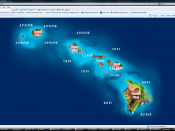Identity, it is the concrete and defining feature of who we are. Without identity we have no way of telling the differences between each other, no way of explaining how I differ from my friends, family, or complete strangers. Identity is one and the same with our individuality; and yet, due to the explosion of online virtual communities, identity is losing its meaning. Chat rooms, the most common of all virtual communities, have created a new space, not physical, but just as real in terms of visualization and social interaction. Within these new virtual spaces identity is questioned, molded and exchanged like the daily changing of clothes. What one has to wonder is that if people require a stable sense of self, and a stable sense of who other people are in order to function in real life, why are people continually drawn into virtual worlds where identity is anything but stable, where deception is not only accepted, it is expected?
What is identity? It is a hard question to answer.
The dictionary describes identity as "the state or fact of being the same one or ones as described, mentioned, etc." This seems to indicate that identity is singular, that one's identity is fixed and unchangeable. But if this is truly identity, what indications do we use to broadcast our identities to the real world? Identity is a quality that defines who we are, how we see ourselves and how we reveal ourselves to others. It is not just a physical description (although that is part of the picture), it is also a mental description and this is why identity can coexist on a purely textual medium. The question comes up: What happens when identity online identity interferes on identity offline? Let us look at this. In its simplest...


